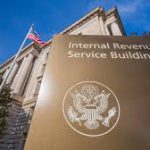I love Las Vegas. Great restaurants, great shows, and five trips in a row without dropping a nickel into a slot machine. Why? Because I hate gambling. I hate losing even more. Honestly, just getting out of bed every morning is risky enough for me.
That said, I see a lot of plan sponsors who seem to love gambling a whole lot more than I ever could. They make a bet that a compliance error will just quietly disappear. Instead of self-correcting, they cross their fingers and hope the statute of limitations on that year’s Form 5500 runs out before the IRS or DOL comes knocking. That’s not strategy—that’s a Vegas-style long shot with terrible odds.
Here’s the thing: when the cost of fixing the problem is a fraction of what the government could hit you with if you get caught, refusing to correct it is a fool’s bet. You’re not gambling with the house’s money—you’re gambling with your own. And in this game, the house (a.k.a. the IRS or DOL) doesn’t lose often.
Self-correction and the Voluntary Compliance Program exist for a reason—they’re your best path out when you’ve made a mistake. Betting on getting lucky with an audit isn’t just bad compliance; it’s a great way to get fired by any third-party administrator that knows what they’re doing. Worse, if you do get audited, you’ve lost all credibility, and now you’re at the mercy of someone with the power to levy real pain.
Vegas is for shows and steak dinners—not your retirement plan compliance strategy.







